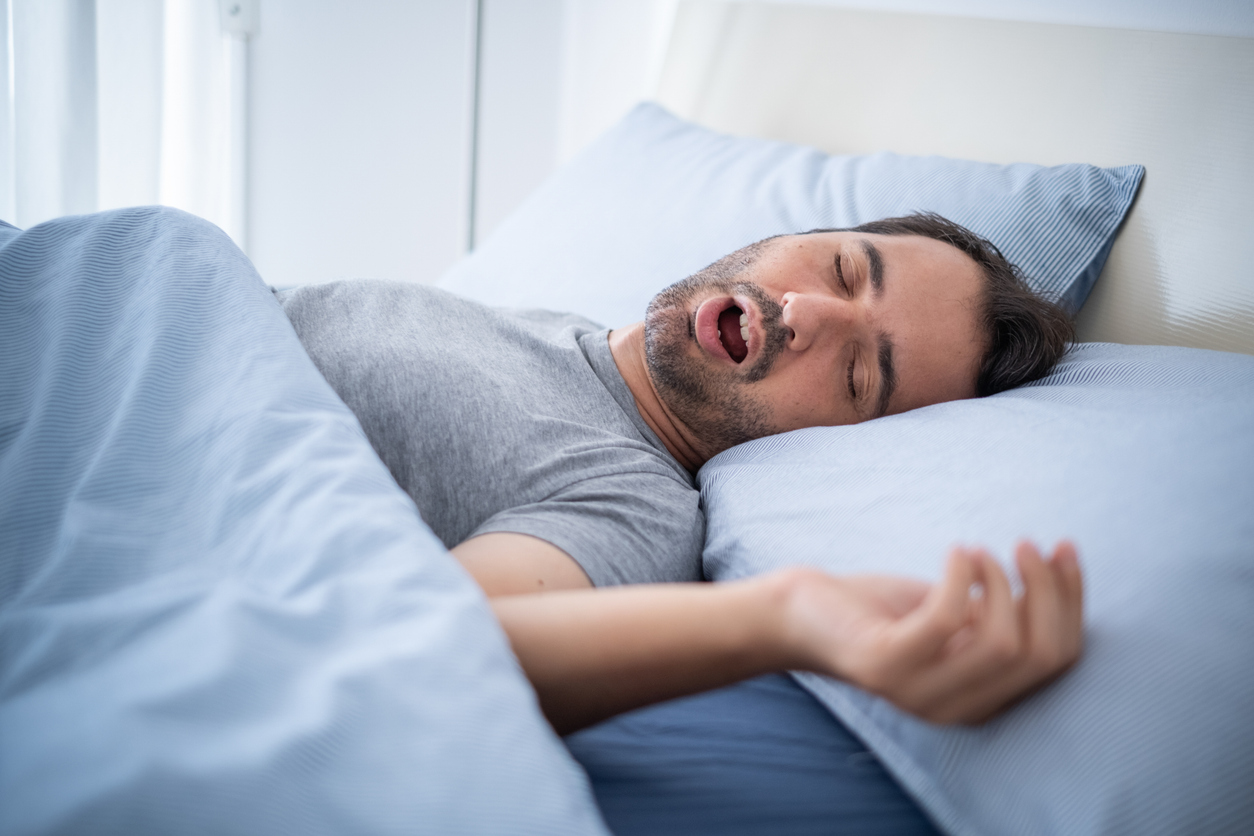How Treating Sleep Apnea Improves Oral Health
Sleep apnea is associated with a variety of health considerations, including oral health issues. Interestingly, some dental problems can contribute or even cause sleep apnea. In this article we will talk about the connection between dental health and sleep apnea. We will also answer the question: “How treating sleep apnea improves oral health?”
Why Is Sleep Apnea Dangerous
Sleep apnea is a sleep disorder associated with breath interruptions during sleep cycles. The danger of sleep apnea is that it disrupts oxygen flow to the lungs. This can increase blood pressure, strain the heart, negatively influence energy levels and mental performance throughout the day. Needless to say, these side effects have long-term health complications.
Symptoms of Sleep Apnea
Sleep apnea, as any other illness, should be diagnosed by your doctor. However, there is a list of symptoms that, if present, can prompt you to consult a specialist. You might suffer from sleep apnea if the following happens during sle:
- Loud snoring
- Gasping for air
- Interruptions in breathing
- Waking up with a headache and/or dry mouth
- Trouble staying asleep
Also, there are symptoms associated with sleep apnea that can be present during the day:
- Decreased energy levels and fatigue
- Decreased concentration and forgetfulness
- Irritability
- Anxiety and depression (especially in women)
- Asthma exacerbation, or bed-wetting in children
Oral Health Issues Associated with Sleep Apnea
Deep and sufficient sleep is crucial for the health of the whole body. Sleep Apnea disrupts sleep cycles, resulting in all sorts of problems. Some illnesses that might develop as a result of sleep apnea include:
Bruxism (teeth grinding and jaw clenching)
You might not know that you grind your teeth and clench your jaw at night, because it happens involuntarily when you are asleep. Indicators that you have bruxism might include:
- Headaches, jaw and neck pain
- Erosion of teeth surfaces
- Cracked, chipped and even broken teeth
- Sore spots inside the mouth
- Lips, mouth and throat dryness upon awakening
Some of these symptoms can be spotted only by your dentist. That is why we recommend having regular checkups at the dental office. Diagnosing a problem at an early stage increases the chances of successful treatment.
TMJ (temporomandibular joint) disorder
Temporomandibular joints connect the lower and the upper jaws. Symptoms of TMJ disorder include:
- Jaw pain
- Head, neck and shoulders pain
- Difficulties chewing
- Clicking sounds in the jaw joints
- Locked jaw or inability to open or close your mouth for a period of time
Mouth Breathing
Snoring and gasping for air caused by sleep apnea go hand in hand with breathing through your mouth instead of your nose. This leads to mouth and throat dryness and tooth decay. It also increases the risk of mouth sores, gingivitis (gum inflammation), and gum disease.
How Treating Sleep Apnea Improves Oral Health
We recommend getting a professional opinion as soon as possible if you suspect you might have sleep apnea. Your dentist might suggest ways to alleviate the some symptoms of sleep apnea, making its negative effects on oral health less pronounced.
Possible courses of action for treating negative consequences of sleep apnea for oral health can include:
- Your dentist might refer you to a specialist who can prescribe CPAP treatment. A continuous positive airway pressure (CPAP) machine generates pressure with the help of a small and quiet motor. The air is taken in through a filter, pressurized, and delivered via a tube to the mask worn by a patient during sleep.
- Orthodontics treatments might be used to fix teeth and bite misalignment. This can reduce strain in the jaw joints, reduce neck and back pain.
- Dental mouthpiece can be used in managing teeth grinding and jaw clenching habits. In fact, this is an extremely effective way to improve sleep and oral health. Ask your dentist to recommend a mouthpiece that is suitable for you.
Sleep apnea treatment and available dental treatments for problems associated with sleep apnea, can noticeably improve oral and overall health. The risks of tooth decay and gum disease can be significantly reduced as well. This can have a positive influence on the heart and digestive system, as these are two organs weakened the most by dental infections.
Make an Appointment Today
As we mentioned before, untreated sleep apnea can be associated with a big range of cardiovascular (hypertension, atherosclerosis), brain (stroke, brain damage, cognitive dysfunction), metabolic (diabetes, obesity), and systemic (depression, anxiety) issues. Normal sleep is extremely important for staying healthy and having a good quality of life.
Make your first step towards improving your sleep and dental health today by making an appointment at our office. We are looking forward to welcoming you at Smiles of Arcadia.

Leave a Reply